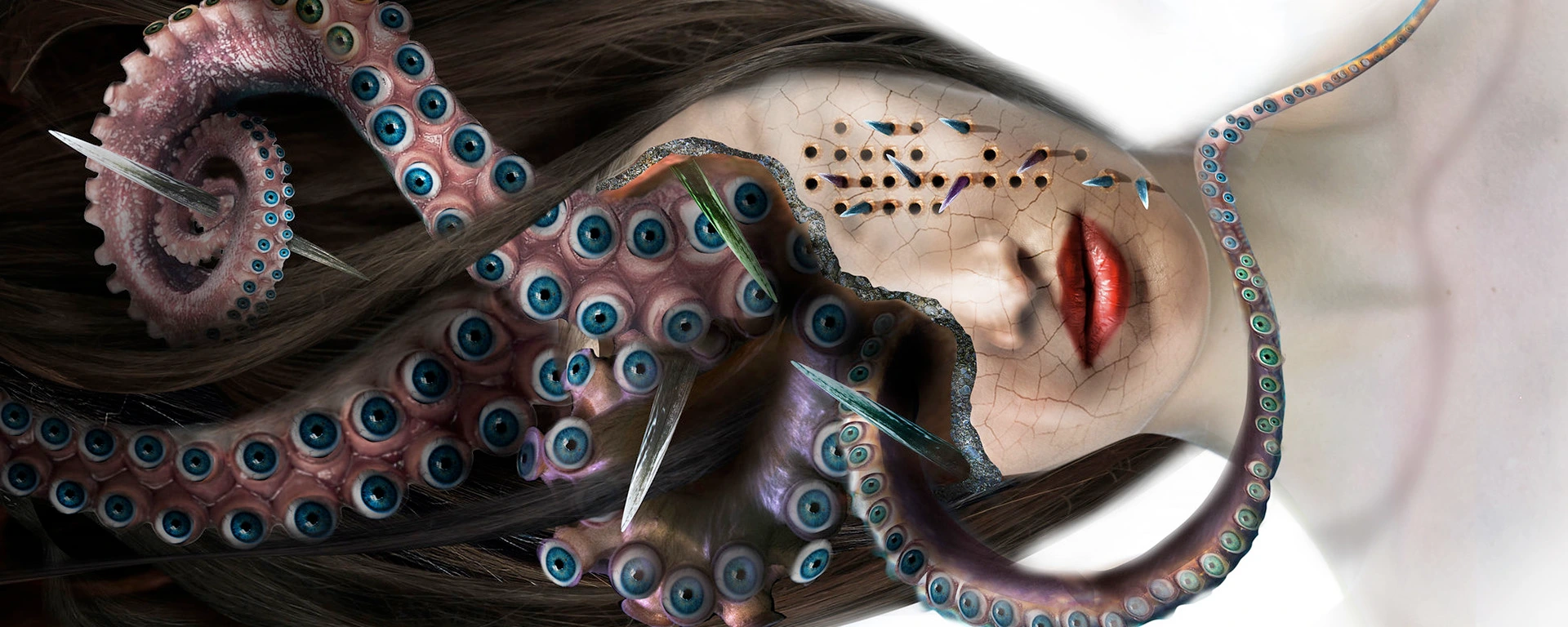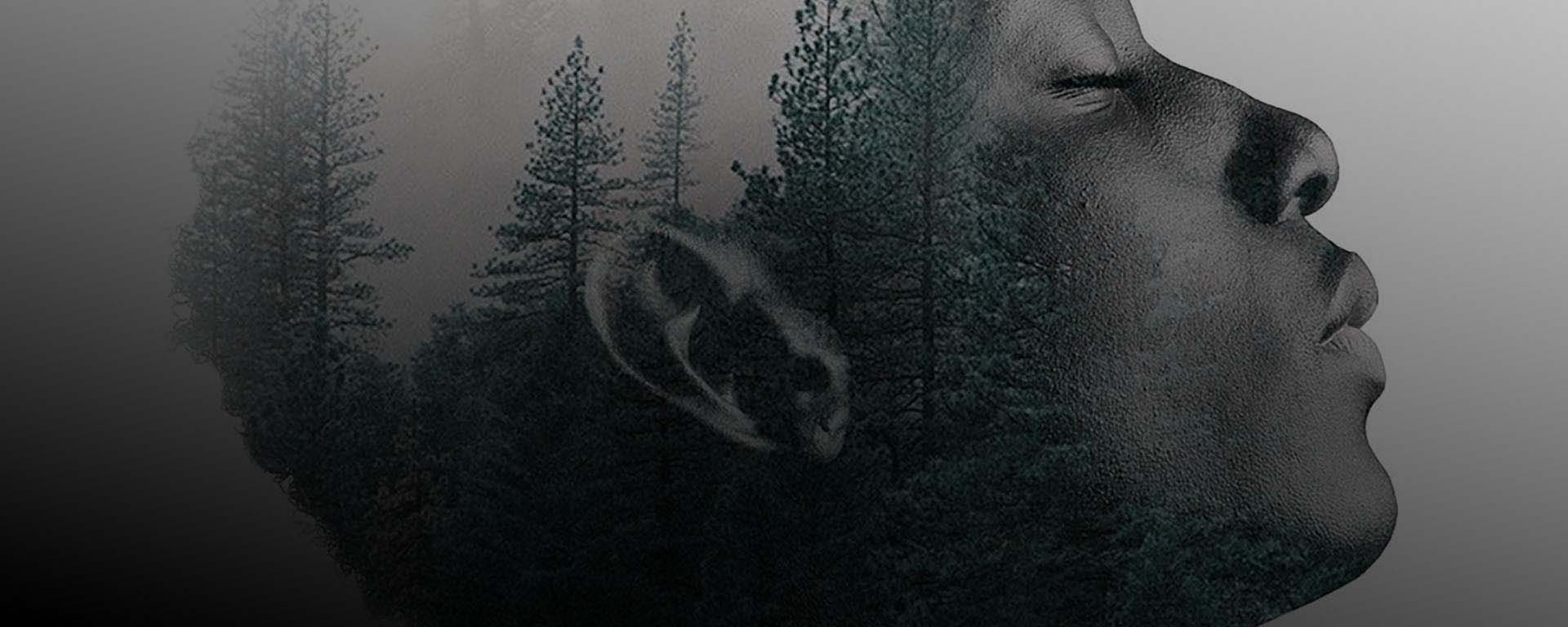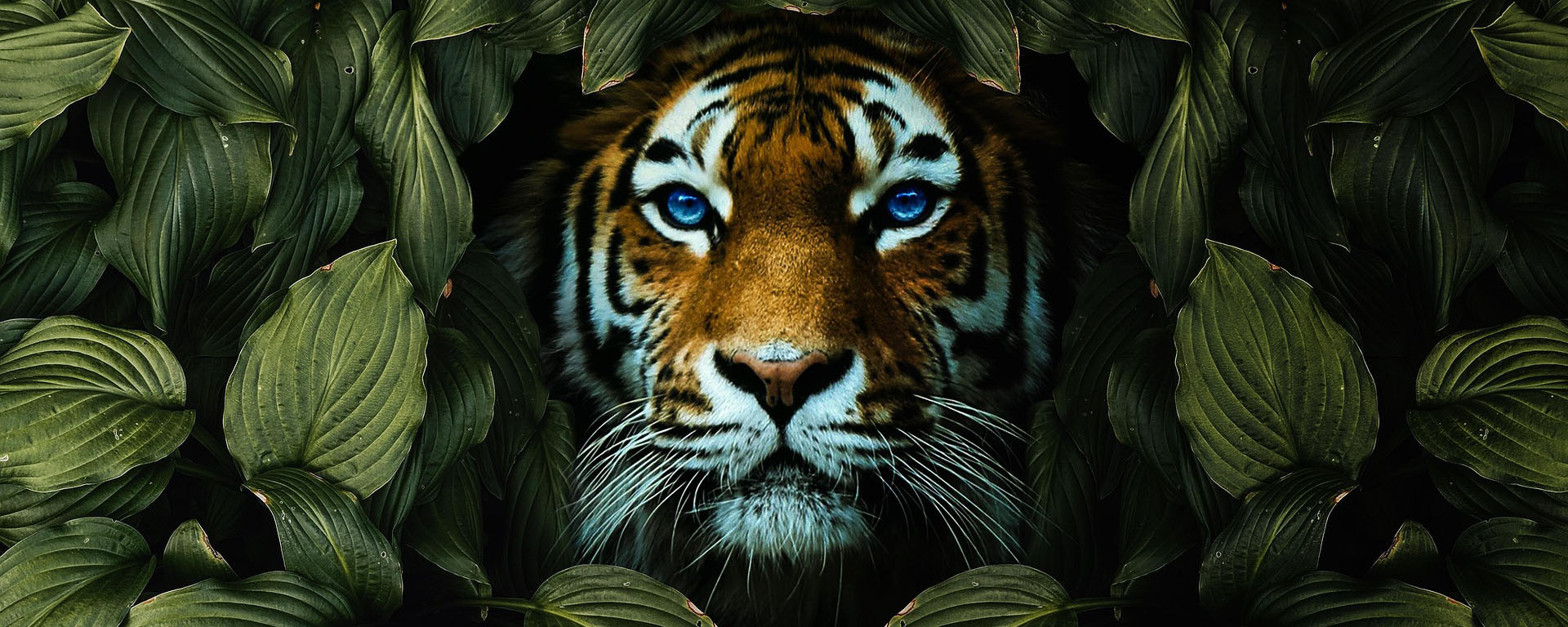Occasionally grace comes as an unexpected experience, turn of fate, good word, even a glance. The most recent arrival of grace for me was watching the documentary My Octopus Teacher, then watching it again. It was not grace directed at me but received by diver and filmmaker Craig Foster, who let its nectar flow to us all. As grace is rare, My Octopus Teacher is doubly so.
Swimming in an underwater ecosystem with a mask is an experience like no other; an experience wherein the inseparability of self and world is so overwhelming you can’t miss it. We miss it on land all the time, where we take our illusory hermetically sealed selves for granted, but it can’t be missed undersea where water penetrates and bursts you open. Instead of the senses passively intersecting with the terrestrial world, underwater they are barraged by an exotic reality: the cold-water shockwaves turned into caresses, the mesmerizing reverberation of your own breath, the taste of brine, and above all the eyes set on fire by beings, colors, encounters, possibilities. Every part of you inside and out is touched, energized, galvanized. As you move with alertness, your amphibious stride eventually finds flow, so that snorkeling becomes a meditation where you are both in union and apart, immersed and witnessing. Joyful beyond words.
We are graced to inhabit the universe of planet Earth where this experience is still available, and we may still have a fighting chance to preserve it for children and future generations.
You might visit such a world of reefs or seaforest, or keep returning to the same place every day. If you keep returning, like Craig, the underwater realm will be revealed as home—wild home with neighborhoods rife with unexpected pleasures, hidden beauty, and danger.
Enter the octopus. Enter awareness. It’s been said that the chief characteristic of awareness is its ability to recognize awareness in another. This gets us virtually nowhere in defining awareness, but that is as it should be because awareness is bigger and older than thinking and wording. Awareness encompasses thought and language, so that thought and language cannot pin down awareness but only point to it.
The octopus, an unnamed She, is the heart and soul of the movie, but awareness is everywhere in the seaforest. It is in the fish who come to stare at her “survival art,” improvised in deft flurry from seashells and other objects. It is in the pyjama sharks whose movement is a dreamy blend of languidness and precision. It’s in the entire vibrant field of the kelp forest, through which the human can also move, not necessarily with languidness and precision, but in human mode of confidence and gentleness.
It is tempting as the film unfolds to recalibrate one’s assessment of the octopus species as belonging to the planet’s elite of intelligent beings (or to have that assessment confirmed if you already knew something about octopus smarts): of beings like humans (the epitome needless to say), elephants, gorillas, crows, parrots, and whales among others. It’s a subtle but irresistible thing that the (Western) mind wants to do—to deploy categories that perpetuate the habit of hierarchical reasoning, categories that tacitly exclude many, if not most, nonhumans. The special league of “intelligent” species is arguably something of an unconscious human-supremacist sleight of hand. Human supremacy, being under fire in our time, is on the lookout to safeguard elite clubs: clubs that ostensibly exclude things like spiders, chickens, and trees.
The human under the spell of its distinction prefers to bypass the phenomenon of nonhuman awareness, to leave it overlooked. The reality of awareness does not need human evaluation, but remains ever receptive to human recognition. Awareness is not a quality of some exceptional league of beings; it is a hallmark of life.
The octopus is aware. She is brimming with self-awareness and with the recognition of awareness in others. Her intelligence—her brilliant agility in action and response, not to say her delightful antics—flows from her awareness. She does not only recognize Craig’s awareness, she also recognizes his recognition of her awareness. The mutual recognition of awareness creates an energy line between two beings. Love, or more broadly friendship, is the most potent way to traverse that line, because love and friendship have a spaciousness that lets difference and oneness be simultaneously present.
When we open ourselves to the awareness pervasive in living beings, and allow ourselves to be seen by that awareness, this planet will sink its tentacles into our hearts. What then?
The octopus is not only aware; she is an individual. Another temptation of exclusive clubs lurks here, namely, a notion that she is special: a Jonathan Livingston Seagull among octopuses. But like awareness, and profoundly entangled with it, individuality is ubiquitous among animals. (To what extent individuality is a feature of the plant world, or other kingdoms of life, is less obvious. Plant mind is far more opaque to us than animal mind. Plants and animals diverged into separate lineages from a common ancestor over one billion years ago.) In animals, individuality embellishes their awareness making the world we share richer, and more fascinating. Individuality is composed of inherited tendencies, conditioning, vagaries of experience and how these have been assimilated, ingrained habits, ways of seeing, and patterns of responding. Individuality is eclectic, always unique, transient, and (in principle) capable of change. Yet individuality is more than a makeshift composition as it is tagged by awareness.
Beyond a configuration of self-making elements, individuality is about attachment to that configuration. The animal has an inside-out view of its selfhood, and an inexorable attachment to wanting to continue being that self. Fear of death is a deep existential thing, and it is shared among animals. Every animal, being an individual, is important; every animal, being self-aware, is vulnerable. In attending appropriately to the world, it is vital to treat every animal (that would include every human) as important and vulnerable, to quote Craig. This is also why ethologist and activist Marc Bekoff insists on reminding meat eaters that it’s not “What’s for dinner?” it’s “Who’s for dinner.”
After watching My Octopus Teacher, I had the feeling of wanting to weep. This film is about so much more than the story it tells, even as the story it tells is itself huge. The reason for the sadness is that I do not believe humanity, for the most part, (yet) understands the deepest meaning of plummeting biodiversity. Losing the rich weave of forms of awareness and their magnetic tug on our hearts is something many humans do not know how to countenance, comprehend, and thus rebel against. Better, it seems, to dim awareness with bad food and cheap pleasures, stay glued to the devices, gloat in the self-absorption of “identities,” and think (without thinking) that death is something that happens to someone else.
It will always remain the case, however, that if you fall in love with an octopus (or a dog, snake, tree, human, bird, or some other living being), and that being requites your love, you will know healing that borders on conversion.
“Fall in love” with a machine and you risk being turned into a robot.
Also highly recommended is the documentary The Social Dilemma, and taking seriously its counsel to think critically about the line that connects our eyes (meaning brain) with whatever lies on the other side of the device. Which has no awareness, and never will.
The devices everyone is immersed in, playing on, and working through are sufficiently habit-forming in themselves—what with expanding horizons of information, knowledge, entertainment, and communication—without needing to have built-in algorithms specifically designed to make them addictive. The device cajoles you to stare, scroll, click—repeat, all the while unaware of being at the receiving end of a feed intended to make you do exactly that. We are largely or wholly unaware of content tailored specifically for us, for the manipulation of our individuality, streaming the stuff that pulls our strings, reinforces our point of view, sways us if we’re on the fence, and keeps us hooked. You walk by your smart phone and unthinkingly pick it up to look at email, Facebook, Instagram, or whatever. Or the thing beeps at you, and you react like Pavlov’s dog.
Full immersion technology users are sleepwalking while nature burns. The veneer is all about virtual contact, a paperless world, and recording to the cloud, but behind the screens are mushrooming cell towers and real locations replete with supercomputers of burgeoning computational power, running (self-unaware) algorithms with a capacity for “deep learning.” The personal devices themselves, and the material infrastructures they’re connected to, are made of actual metals, minerals, water, and energy, constructed by machines made of the same, with billions of online users and billions more in the proverbial waiting room—a surging material-cum-energy devouring “virtual reality.” Since all of this is appraised as modern privilege, it follows that everyone justly deserves it, so we are headed (by century’s end, barring collapse) toward 9 to 11 billion users who will minimally own one personal electronic device. Hence, the march of deep-sea mining to keep ahead of the demand glut for all that stuff. Just as you may not have heard about algorithms programmed to bait you, so you’re unlikely to have come across news of imminent high-seas mining to manufacture the material setup of your entrapment.
Machines receive data about you (“more than you can imagine”), and get increasingly better at providing you with what will keep you codependent with your device, thus funneling it more and more data about you, so that its granular precision at feeding you what feeds (but never satiates) you gets increasingly refined. That would include your brand preferences and music choices, as well as your biases, weaknesses, conspiracy-theory inclinations, pleasure triggers, aversion detonators, and political ideology. Thereby boxing you into the configuration of your profile. The machine models who you are and then proceeds to condition you into the solidification of that model. Critical theory calls this “reification,” but to my knowledge no one anticipated that it could, it would, be done to the human personality.
Have you ever met an adolescent (or an adult for that matter) turned into a junkie for the feed? There’s a sure giveaway, besides a perpetual curvature in the neck and the fact that they sleep with their phone under their pillow. If you observe their face, they look like they never woke up in the morning.
That stupor is caused by Artificial Intelligence (AI), a thing about which hype abounds starting with its name. “AI” packs more than seems possible in two words, let alone an acronym. Man the Maker, the Innovator, now the Creator of mind in silicon medium. What is this manmade marvel of machine cognition? Computational programs trained on enormous amounts of data (the more the better) that subsequently receive real-time feedback in such a way that they continually improve the performance of what they were programmed to do. It’s an impressive enough achievement to be called intelligence, for short. Intractably unaware as it actually is, however, the recursive and improving functioning of machine “intelligence” might easily portend disaster.[1]
As “the law of accelerating returns” (the phenomenon of nonstop exponential growth in computational power) ensures that the programs perform better faster, “they’re making us smarter,” according to AI frontrunner Ray Kurzweil. “They may not be inside our bodies, but, by 2030s, we will connect our neocortex, the part of our brain where we do our thinking, to the cloud… We’re going to get more neocortex, we’re going to be funnier, we’re going to be better at music, we’re going to be sexier” (Reedy 2017). Yet many brains already merged with the machine do not seem to be making their owners smarter, funnier, or sexier. The merger is making them play the slot machine, to borrow an analogy from The Social Dilemma, starting first thing in the morning and ending last thing before bed: Reaching for the device for that bingo picture, post, video, tweet, or something that will deliver a feel-good hit.
There’s the mixed bag and extremely cautionary reality of electronic life, on the one hand; and there’s the techno-utopian gush about that reality, on the other. Techno-utopian narratives tend to be tipping-point types of narratives. As computational power magnifies exponentially and technologies become fashioned to bridge biological intelligence with machine intelligence, there will come a point-of-no-return when human beings will ascend, transcend, enhance, and expand themselves. We are going to become “Human 2.0” (Sahota 2018). By 2045, give or take a few decades, algorithms will become trillions of times smarter than the human brain, an eventuality called Artificial Superintelligence (ASI). According to the apostles of this First Coming, ASI will exhibit a level of intelligence that is unimaginable from a human perspective, just as human intelligence is unimaginable from the perspective of, say, a beetle (see Urban 2015). Yes: Human thinking about computer thinking unwittingly rallies the Great Chain of Being—except it’s not Angels on the tier above humanity, it’s Computers. The Great Chain of Being 2.0.
Once we tip into the reality of ASI, it will be child’s play for these unimaginably intelligent machines to crack our problems: solve global warming, revive extinct species, remove excess atmospheric CO2, cure cancer, end world hunger (by making meat from scratch with the help of nanotech), and distribute food to the needy via “ultra-advanced transportation” (Beam it over, Scotty?). For those with a humanistic bent—not to despair—ASI will resolve our “haziest grapplings with philosophy and ethics.” Above all, after ASI (hopefully) no more death (Urban 2015). Thus, if we can just hang in there individually and collectively, computational breakthroughs will soon be provisioning far more than Amazon purchases via drone.
On the flip side of such techno-utopian delirium lie the darker implications of Artificial Intelligence, such as building autonomous weapons, marshaling enormous amounts of personal data to orchestrate political outcomes, and who knows what else besides. These menacing uses of computational power are already emerging, launched not by “sentient machines”[2]—an empirical unreality from now to hereafter—but by greedy, mindless people armed with supercomputers.
Earth is a place of exquisite vitality pervaded by the mystery of awareness. It is being catastrophically impoverished. Artificial intelligence will not bring back what is vanishing, nor replace it. If you wish to know transcendence, forget the machine. Look for an octopus teacher.
[1] For a recent lucid discussion of the dangers of AI, see McKibben (2019).
[2] Adams (2016).
References
Adams T (2016). Artificial Intelligence: “We’re like children playing with a bomb.” https://www.theguardian.com/technology/2016/jun/12/nick-bostrom-artificial-intelligence-machine
McKibben B (2019). Falter: Has the Human Game Begun to Play Itself Out? Henry Holt and Company.
Reedy C (2017). Ray Kurzweil claims that singularity will happen by 2045. https://futurism.com/kurzweil-claims-that-the-singularity-will-happen-by-2045
Sahota N (2018). Human 2.0 is coming faster than you think: Will you evolve with the times? https://www.forbes.com/sites/cognitiveworld/2018/10/01/human-2-0-is-coming-faster-than-you-think-will-you-evolve-with-the-times/?sh=641272664284
https://waitbutwhy.com/2015/01/artificial-intelligence-revolution-2.html
Latest Blog
-
 The Eight Freedoms of Farm Animal Wellbeing 24 December 2025
The Eight Freedoms of Farm Animal Wellbeing 24 December 2025 -
 Regarding misanthropy 11 July 2025
Regarding misanthropy 11 July 2025 -
 Mirror, mirror on the wall… (eco-hacking AI) 12 April 2025
Mirror, mirror on the wall… (eco-hacking AI) 12 April 2025 -
 WITNESS: Tiger magic 24 March 2025
WITNESS: Tiger magic 24 March 2025 -
 The secret garden 20 December 2024
The secret garden 20 December 2024



